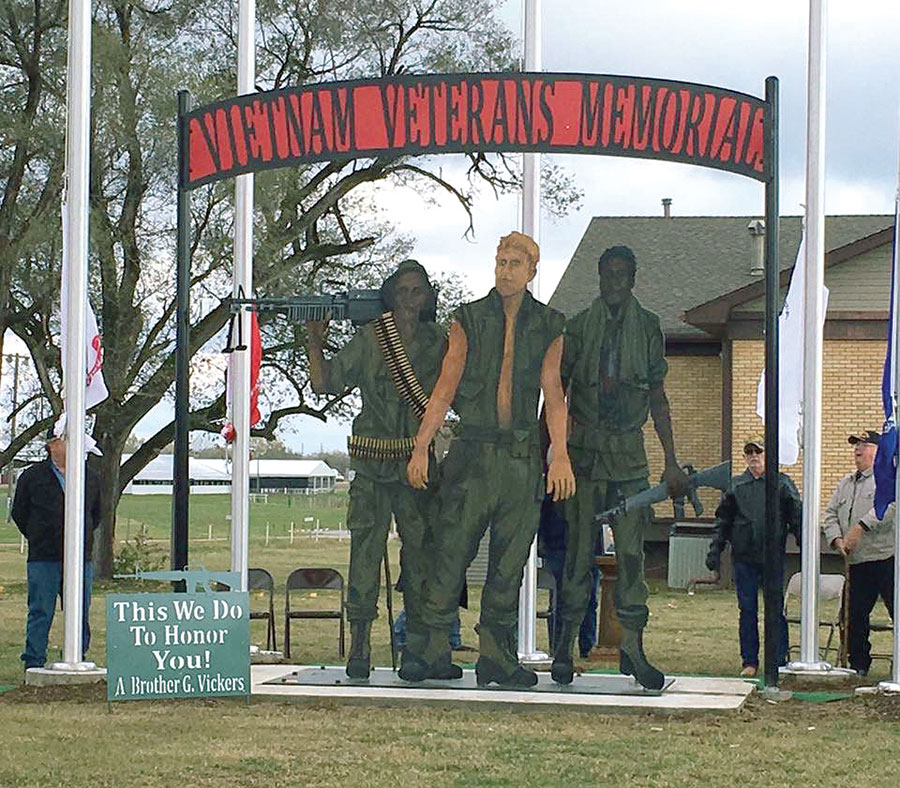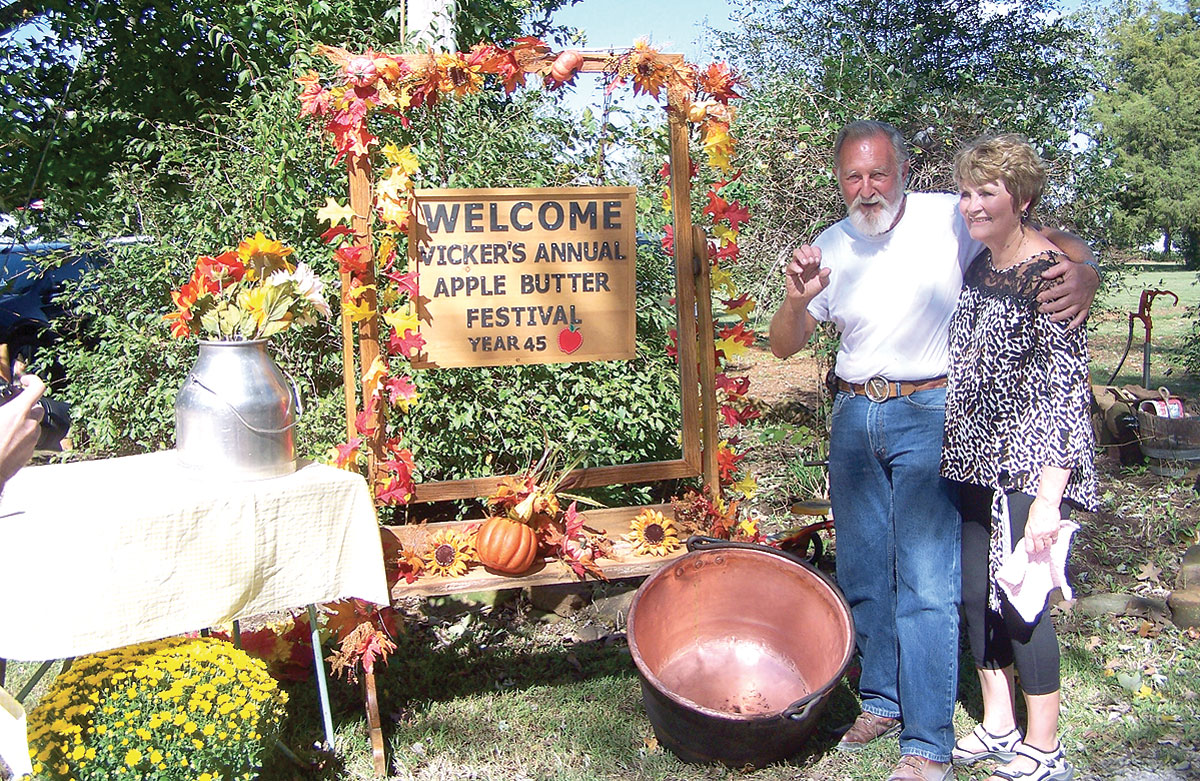 Lifetime Vernon County, Mo., resident strives to honor veterans
Lifetime Vernon County, Mo., resident strives to honor veterans
“The rights, freedoms and privileges we share today are because these men and woman made the sacrifice for this great country and the values, we hold so dear.”
Gary Vickers of Vernon County, Mo., does more than just talk about honoring veterans and county. He built a memorial to honor them.
“The idea for this tribute came to me when I was in Washington, D.C. and saw the three soldiers made of bronze,” he said at a recent dedication in Nevada, Mo. “While there, I had the opportunity to explain to many people what they were about. I decided to do something similar in Missouri and in Missouri style.”
Gary was born in 1947, the oldest son of Gaylord and Nadine (Elders) Vickers. His dad was a WWII veteran side gunner on a B-17 who made captain before he got out of service.
“He was strict and quite demanding as we all worked together on a large farm. Being the oldest boy, he pushed me to be able to look after the family if something happened to him. He started me at the age of 6 driving tractors and pickups,” Gary said. “By age 11, I was driving two-ton trucks delivering grain, could barely see over steering wheel but got it done. One proud young man. By age 13, I worked the fields, drove small-semi, tractors, cars truck, did mechanics, vetted cattle, and roped and rode horses. I think one reason my dad pushed me was somehow he knew I’d have some hard choices to make in life; the Vietnam War provided those hard choices.
“I took my military training very serious and being an athlete in school the physical part came pretty easy,” Gary recalled. “As a farm boy, they couldn’t wear me out. I was used to hard work and long hours. I looked at my service time as the right thing to do and as a job. I would give it my best shot.”
Vietnam sights and memories: Bamboo so thick they had to clear paths, elephant grass, river crossings hand over hand on a rope, no certain front so anyone could shoot at you, booby traps in rice patties, on kids and even pop that kids sold. Vickers bought one bottle that looked sealed and had it up to his mouth when a buddy noticed glass shards and yelled at him to stop. By this time, the kids had melted into the jungle.
VietCong trip wired hand grenades and were gone by the time a soldier tripped it. Danger everywhere. The weather was so hot the sweat caused their uniforms to stick to their bodies and dripped to the ground. Vickers was introduced to pungee pits when a soldier close to him fell into one. Fortunately for that soldier, he fell right at the edge and his rifle caught the stakes and broke them. Pungee pits were holes dug in the ground deep enough for soldiers to fall into with sharpened stakes that had been covered with human feces at the bottom. If the soldiers weren’t found, they either died of starvation or infection.
As platoon sergeant, Gary had a big responsibility; walking point.
“I never sent them where I didn’t go. No one walked with me unless he volunteered,” he recalled.
He knew if he missed something, someone would have to pay. He felt safer walking the point than the drag because the Viet Cong mostly hit the drag, knowing the soldiers had to come back.
As Infantry soldiers, they spent from 21 to 28 days in the field without R&R. Then they were allowed to go to a base that had showers, cots in tents with mosquito netting, and clubs that served drinks. The showers were the most wanted zone.
“We’d shower, and get back in line and shower again.” On one trip they were supposed to stay three days but were cut short by a half day. Disappointed or not, they were soon back in the field.
They were ordered to set up an ambush by a trail. It was not a good place. When they were checking it out, three Viet Cong soldiers walked down the trail in broad day light. Their hand grenades didn’t go off or Vickers’ unit would have been demolished. The American grenades worked, however. Usually his unit moved after an ambush, but this time they waited until dark, and decided not to try and take prisoners. Two hours later, the unit positioned to their left was hit hard.
“My good friend, the sergeant, was killed. I carried him out and to this day, I don’t know how I did it. He was over 200 pounds and I was a little over 150.”
After serving in Vietnam for 10 months, Gary was shot.
“I always told people that I’d be all right because I had good people covering my rear, and guess where I got shot? It wasn’t a life-threatening wound, but a large part of my backside was shot away on one side.”
Vickers was sent to a hospital in Japan.
When Vickers went into the service, he weighed 171 pounds. When he entered the hospital, he weighed 158 pounds with no flab. His hair quit growing and turned white at 21 years of age.
Vickers didn’t let the events sour his outlook on life. He came back to Missouri, married, raised a family and provides an apple butter festival at his farm each year for family, community and especially veterans.







